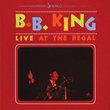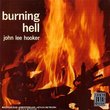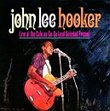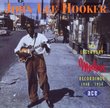| All Artists: John Lee Hooker Title: Jack O' Diamonds: 1949 Recordings Members Wishing: 0 Total Copies: 0 Label: Eagle Records Release Date: 5/18/2004 Genres: Blues, Pop, Gospel Styles: Contemporary Blues, Traditional Blues, Regional Blues, Detroit Blues, Electric Blues, Acoustic Blues Number of Discs: 1 SwapaCD Credits: 1 UPC: 826992002422 |
Search - John Lee Hooker :: Jack O' Diamonds: 1949 Recordings
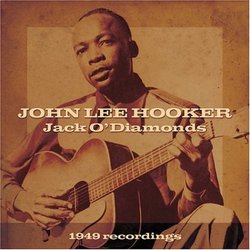 | John Lee Hooker Jack O' Diamonds: 1949 Recordings Genres: Blues, Pop, Gospel
|
Larger Image |
CD DetailsSimilar CDs
|
CD ReviewsUnique, the Young Hooker, sings blues & traditional songs Tony Thomas | SUNNY ISLES BEACH, FL USA | 11/08/2004 (5 out of 5 stars) "I got this recording home Friday Afternoon, it is Monday Afternoon now, and I haven't been able to get it out of the CD player. This is 1949. Johhnie Lee is young. It is the moment just before big initial hits "Boogie Chillen" and "Boom Boom Boom" hit the market. We're not in a recording studio. We're in the living room of a Detroit blues lover who had him over for dinner and a party. Instead of the repertoire record sellers demand so they could claim each tune for their thieving selves, we have Hooker, free, requested not to play that music. He's playing in the African American tradition not competing for bucks with other R & B stars. Instead, Hooker sings hymns, folk songs, blues that radiated out from recording of the great 1920s bluesmasters like Leroy Carr to become effectively traditional, tunes Hooker brought up to Detroit from Clarksdale, Mississippi. This recording shows us that while the greed and stereotyping of the record industry restricted Black guitarists like Hooker to blues, Hooker at least retained a very good selection of traditional dance tunes, hymns,and other African American folk songs. I love "How Long Blues" and "In the Evening when the Sun Go Down." If you don't know Robert Johnson's "Love in Vain," is simply a remake of Leroy Carr's "In the Evening," you will know that after they hear Hooker's powerful rendition on this CD. There is more pain and more poetry in Hooker's "Catfish Blues," than in the sexier version Muddy Waters put out about the same time. Johnnie Lee isn't singing about hunger for sex, but hunger for love, deep heart hunger that he will sing about for the rest of his life. Hooker's rhythmic power rocks the Hymn "Ezekiel Saw the Wheel." "Jack of Diamonds" is smack dabb in the middle between banjo songs and blues. He does "Rabitt on the Log" an African American version of a song made famous as "feast here to night by the Monroe Brothers." The Blackness of these tunes is manifest in these versions. You see the sistas and brothers back in the juke joint or in a house dance really moving to Hooker's voice and guitar, maybe with a fiddle, a mandolin or eeven a banjo beside him to these tunes. Even Big Monroe sounds tame Johnnie Lee whose bunny seems to ache with love hunger. I was touched by "I Wonder," a Pop/RB tune out at the time of this recording. Hooker barely knows the words and stumbles a few times. Yet, it is an early example of the subtlety, poetry and pure heart and feeling that Hooker often reaches when he is singing non blues pop or jazz songs. He doesn't need the perfect words to express himself. He treats them like a blues, where every singer is expected to change the words, even the melody at times to create create a their very ownmeaning, that song becoming absolutely their song at that moment, not just repeating someone else's tune. Hooker will do this later on standards like "I cover the Waterfront," "Sentimenta1 Journey," and even on "I left my Heart in San Fransisco" which Hooker will refashion into the "'Frisco Blues." Here, he is singing this in someone's living room, and you are touched. Rather than the primitive that Hooker is often viewed as, he was a distinctive and creative artist with a sensitive gift for feeling, nuance, and meaning, a creative force armed with a unique combination of the traditional African American music feel, educated in the deep Mississippi Blues, but ready with the modern technology of the electric guitar and boogie rhythm to take this out to touch the entire world. The remastered sound here is first rate thanks to the fact that the person who recorded it had a state of the art professional tape recorder in his home, and that this CD is being reissued as part of the Hooker estate's effort to bring out Hooker's music in quality editions. Hookers singing is more personal, more vibrant, and even a bit shy here compared to his other recordings. The guitar playing is apparently acoustic, but it is very rhythmic, very sharp, very much Hooker with the tunes perhaps a bit faster than normal. If you love Hooker, you must have this album. If you are interested in the places where the Blues and traditional southern African American music meet, you must have this album. If you want Johnnie Lee to come into your home to sing and play while you share good wine and better food, you must buy this CD! " I am that man! Gene Deitch | Prague 1 Czech Republic | 12/02/2004 (5 out of 5 stars) "As I, Gene Deitch, am the man that recorded John Lee Hooker at my Detroit home in 1949 - the very tapes that over 50 years later have been issued on the Eagle Records CD, entitled "Jack O'Diamonds: 1949 Recordings," I am extremely gratified by the warm and loving reviews appearing here. Thank you. Gene Deitch" Frighteningly talented. Kavity Killer | denver, colorado United States | 02/10/2005 (5 out of 5 stars) "The word "amazing" is thrown around alot these days. "My boyfriend is so amazing!" "That sandwich was amazing!" "That dust mote is amazing!" Its too bad because it robs the word of its original power, a power which would have perfectly described what John Lee puts down on this recording. His style is so hypnotically primal, his lines so futuristic and clean, that he is amazing in a way that your boyfriend will never be. This is the work of a singular blues visionary. It can be acurately said that there are two eras of blues, Pre-John Lee and Post-John Lee. If his influence isn't greater, its only because he's incredibly hard to imitate or steal riffs from."
|

 Track Listings (19) - Disc #1
Track Listings (19) - Disc #1